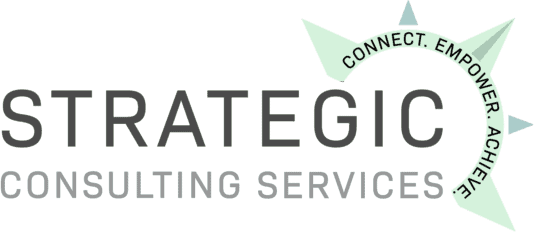Helping Employees Cope With Seasonal Sadness
In the workforce today, depression is a serious issue, often more so during the holidays and winter. These seasons can heighten loneliness and stress, highlighting the need for employer attention. Employers need to recognize symptoms of depression in their employees, stepping in with help and making necessary adjustments at work. Taking action helps create a healthier workplace and supports the company’s stability and success.
Understanding Depression
Depression in the workplace is a substantial concern and stands as a valid disability, often not fully understood. It goes beyond brief periods of sadness or blue moods, affecting a person’s feelings persistently and deeply. Clinical depression differs due to its long-lasting, severe symptoms, setting it apart from short-lived emotional lows. It’s essential to recognize that depression stems from intricate changes in the brain, marking it as a real medical issue. This knowledge underscores the fact that employees with depression are dealing with a true health hurdle, not a lack of character or dedication to their work.
Legal Obligations Under the ADA
The Americans with Disabilities Act (ADA) provides critical protections for employees, including those grappling with depression. This extensive legislation mandates that individuals with disabilities, classified as conditions significantly limiting one or more major life activities, are entitled to fair treatment in the workplace. Depression, with its substantial impact on day-to-day function, usually falls within this scope.
Employers are legally entitled to maintain a non-discriminatory environment and to undertake ‘reasonable accommodations’ for affected employees. They must offer adjustments or modifications that provide an equal opportunity to perform job duties. Employers must understand these legal responsibilities, ensuring a supportive workplace while upholding compliance. Not only does this foster a culture of inclusivity, but it also protects businesses from legal repercussions, reinforcing their commitment to employee well-being.
Providing Open Communication and Support
Open communication is key in supporting employees who may be dealing with depression. Managers need to create a safe space where employees feel comfortable sharing their struggles. This means having private conversations, showing genuine concern, and listening without judgment.
To help someone with depression, you need to understand what they’re going through. This might involve talking to them about their needs or getting professional input. Each person’s experience with depression is different, so solutions that work for one person might not work for another.
Remember, conversations about mental health are sensitive. It’s crucial to respect each employee’s privacy and handle these matters with care. By showing empathy and understanding, employers can build trust with their employees, making it easier to support them effectively.
Accommodation Strategies for Depression
Supporting employees with depression involves adaptable strategies to meet their unique needs. Here are practical steps employers can take:
- Flexible Scheduling: Allow for altered start and end times or the possibility of working part-time. This flexibility can help employees manage their health more effectively.
- Break Adjustments: Provide the option for short, frequent breaks rather than fewer, longer ones. This method can help individuals maintain focus and reduce stress.
- Workload Management: Help employees prioritize work tasks. Sometimes, reducing or rearranging duties is necessary.
- Remote Work: If possible, offer the choice of working from home. A familiar environment can sometimes be more comforting and less stressful.
- Private Workspace: Minimize distractions by providing a quiet, personal work area.
- Professional Support: Encourage access to mental health professionals and allow time off for therapy or psychiatric appointments.
Remember, accommodations should be personalized. Open a dialogue with the employee to determine the most effective approach, considering their comfort and the work’s nature. It’s also important to revisit these strategies regularly, as needs may change over time.
Training and Awareness for a Supportive Work Environment
Creating a supportive work environment for employees with depression is paramount. It begins with proper education and awareness at all staff levels, ensuring everyone understands depression’s complexities and the necessity of accommodation. Here’s how:
- Educational Sessions: Conduct training workshops about depression, clarifying misconceptions and highlighting its impact on work and personal life. These sessions should also cover legal obligations under the ADA.
- Promotion of Inclusivity: Foster a culture of understanding by integrating mental health support into company values. Encourage open discussions about mental health, ensuring employees know they’re supported.
- Managerial Training: Equip managers with specific skills to recognize symptoms of depression, engage in supportive conversations, and implement necessary accommodations discreetly and respectfully.
- Anti-stigma Campaigns: Address workplace stigma head-on by normalizing mental health discussions. Share resources and success stories, emphasizing the positive outcomes of seeking help.
- Confidential Support Systems: Establish easily accessible channels for employees to seek help confidentially, reinforcing the importance of mental health.
By proactively addressing depression in the workplace, companies underline their commitment to a healthy, inclusive environment, encouraging employees to thrive.
Moving Forward by Building Compassionate Workspaces
it’s clear that supportive workplaces are crucial, particularly during challenging times like the holidays. Employers play a significant role in shaping a positive, inclusive environment. By understanding depression, providing accommodations, and promoting awareness, businesses nurture healthier, more productive teams. Now is the time for action — let’s commit to fostering understanding and inclusivity in our workplaces during the festive season and all year round.
Strategic Consulting is Your Partner in Managing Workplace ADA Issues
Our team is here to help with your disabilities accommodation issues, vocational rehabilitation needs, ergonomic evaluations, and other employee needs.
For twenty years, we have been helping companies in the Pacific Northwest with worker injuries, disabilities, and other vocational challenges. We are here to support you in this unprecedented era of teleworking and WFH.
We have partnered and provided solutions to some of the largest companies in the world (such as Boeing, Microsoft, and Amazon). But, at our core, we are still “people taking care of people,” one project at a time. Our success is built upon and providing you the best solution to your workplace challenge. Contact us today by filling out a form (below), submitting a referral, or visiting our ‘Contact Us‘ page to find your nearest office.

Ric has been working in the industry since 2002, specializing in developing employer jobsite analysis and light duty programs, ergonomics consultations and adjustments, disability accommodations and providing effective return to work solutions. Ric is Matheson trained in Ergonomics and is a Certified Ergonomics Evaluation Specialist. He earned a Bachelor of Arts Degree in Psychology from Western Washington University and later his Master’s Degree, M.Ed., Education Counseling from Seattle Pacific University. Ric is currently a Registered Vocational Rehabilitation Counselor for the Department of Labor and Industries and has been a Certified Disability Manager Specialist since 2006.

